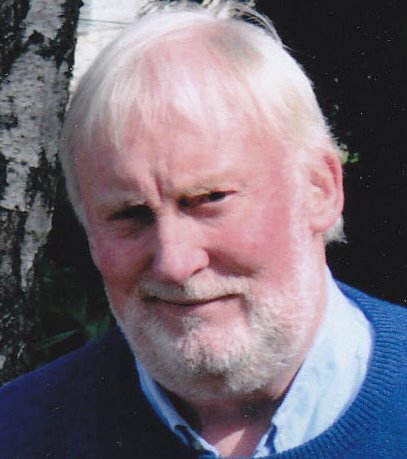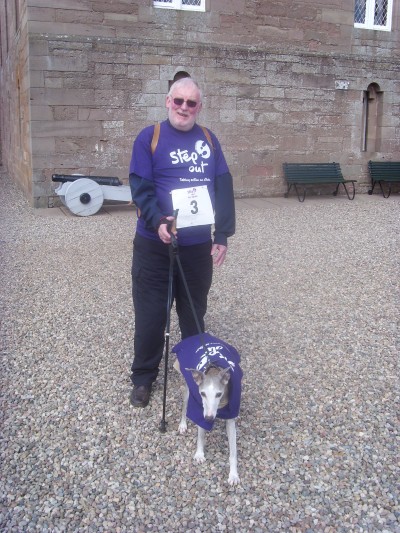 Four Strange Days
Four Strange Days
DAY ONE
I can’t believe my ears. Mistress wants a dog that woofs.
It is one of those grey, depressing days. The rain is beating on the windows and here is Mistress talking about getting a new, noisier dog. Okay – I’m old, but I’m not yet in my grave. Some sensitivity, please. A few more walkies in the old dog yet, I think, even in this dreadful rain. But, no, Mistress has definitely said, “I need to get a woofer as soon as possible.”
I listen to the rain, consider her words and lie down in the kitchen bed to think.
We whippets are not big barkers. Most of the time we just quietly go about our business, eating, sleeping and generally looking ornamental in a languid sort of way. But, barking? That’s not something we do much. Woofing? Not at all. Perhaps the odd high pitched yelp if requiring a warm blanket thrown over us; perhaps the occasional attempt at a single macho bark if the doorbell rings. But definitely no woofing. I’ve always felt that Mistress appreciated my generally cool, silent nature. Yet here she is calling for a woofer. I picture in my mind a large hairy dog with sharp fangs and mad eyes, slavering slightly and uttering deep loud barks in a ponderous, threatening way.
At this point Master wanders past, looking even more gloomy than usual. I wonder to myself what he thinks about this sudden request for a loud barker – but as he usually agrees with Mistress, I don’t hold out much hope there. “We’re doomed, Hamish,” he says as he leaves the room.
I cover my eyes and dig deeper into my blanket. Clearly I have failed as a dog.
DAY TWO
The doorbell rings and I try half-heartedly to summon up a deep vicious-sounding “Woof!” What comes out, of course, is a pathetic, whippety cough. Mistress sweeps past me and opens the door to someone called Jim. Jim carries with him all kinds of buckets and poles, one of which he leans against the house. Within a few minutes, and – get this – without Jim having to do what I have to do – i.e. plead and look soulful – Mistress provides him with biscuits and something to drink. She seems really pleased to see him. As it is a sunny day, I stay outside to watch what Jim is up to. And he might drop crumbs.
After he has eaten a biscuit, Jim climbs slowly up one of the poles he has brought with him and begins to take pieces off the roof of our home. After I’ve watched him for a while, I wander back inside for some sleep, wondering to myself what will happen when there is no roof left.
Master is nowhere to be seen. Has he been replaced by Jim? If so, why is Mistress keeping Jim on the roof?
DAY THREE
Not content with lifting pieces off our roof, Jim is now hammering and scraping away up there. He spends the whole day at it, though he occasionally climbs down his pole to eat the biscuits and drink the tea Mistress offers him. When she’s not offering Jim biscuits, Mistress bangs plates on the kitchen table. The sun is still shining, so it doesn’t matter if we don’t have a roof. Master has vanished completely.
I burrow in to my kitchen bed and shut out the world.
DAY FOUR
Now Jim has disappeared.
There is a noise at the front door – and there is Master, large as life. I wag my tail with suitably understated joy and lead him gently towards the tin where I know my bones are kept. As I munch into my bone, I hear Mistress saying to him, “Jim’s an excellent roofer – it should be OK now. You’ve been lucky to be away during all the banging and clattering.”
Suddenly, the truth dawns on me – four days ago, Mistress said “roofer”, not “woofer”. Perhaps I’m not a failure after all. And as for Master – he was away on one of his “trips” as Mistress calls them (Master calls them “work”).
Panic ye not -things are not always what they seem – or how they sound.
As life returns to what passes for normal in our home, I think that’s not a bad lesson for a dog to learn in this life.
 I apologise for the long time between posts on this blog. There has been much happening in our lives and blogging has had to come second to other things. One of these things has been time spent at meetings to do with the Stroke Charter mentioned in an earlier post (Cross Party Groups) – we hope to launch this Charter in the autumn – watch this space (again).
I apologise for the long time between posts on this blog. There has been much happening in our lives and blogging has had to come second to other things. One of these things has been time spent at meetings to do with the Stroke Charter mentioned in an earlier post (Cross Party Groups) – we hope to launch this Charter in the autumn – watch this space (again). 


